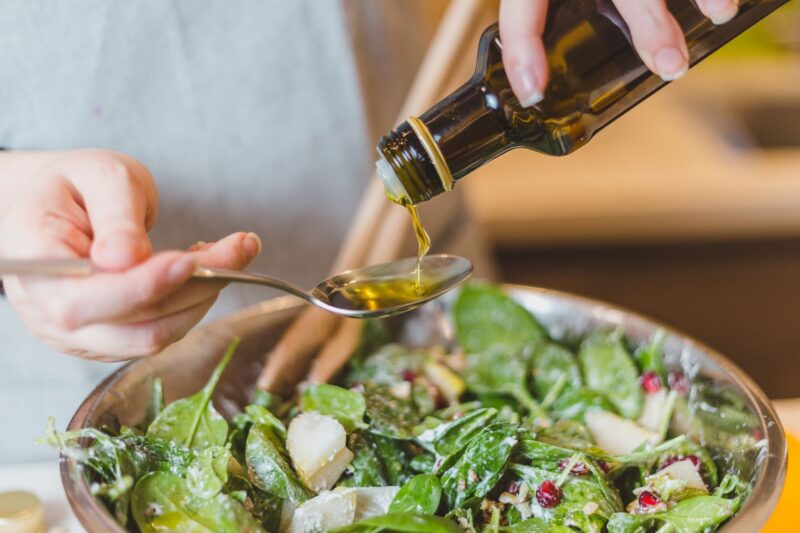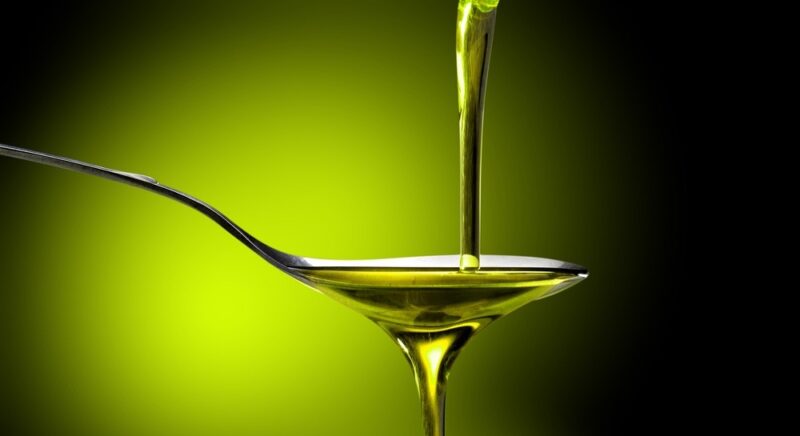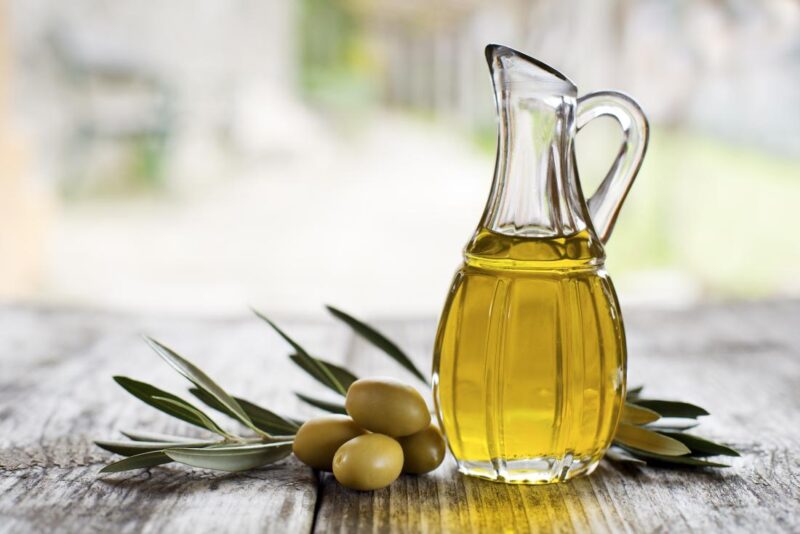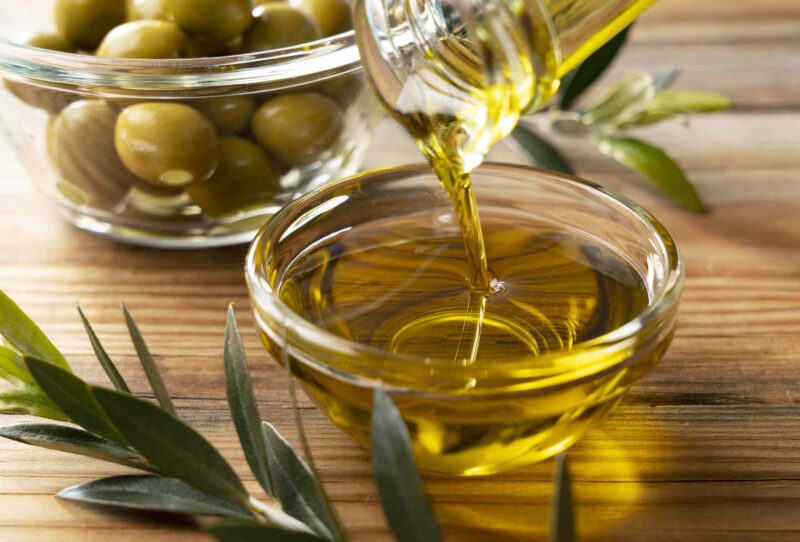Extra virgin olive oil, often hailed as a cornerstone of the Mediterranean diet, brings with it a bouquet of health benefits ranging from heart health support to anti-inflammatory properties. Its rich content of monounsaturated fats, antioxidants, and various nutrients makes it a sought-after ingredient in kitchens worldwide. However, the question of how much of this golden nectar is beneficial without being excessive is a topic of much discussion. In this article, we explore the optimal daily intake of extra virgin olive oil and provide tips for incorporating it into your diet in a balanced way.
Understanding Extra Virgin Olive Oil
Before delving into consumption guidelines, it’s essential to grasp what sets extra virgin olive oil apart. This first-press product stands out for its minimal processing, which preserves the natural flavors, vitamins, and antioxidants. Its unique composition is what makes it not only a culinary delight but also a potent health elixir.
The Heart of the Matter: Cardiovascular Benefits
One of the most celebrated aspects of extra virgin olive oil is its cardiovascular benefits. The monounsaturated fats found in this liquid can help manage cholesterol levels and reduce heart disease risk. But how much is needed to reap these benefits without going overboard?
Daily Intake Recommendations

While there isn’t a one-size-fits-all answer, a general guideline suggests that for adults, consuming about 1-2 tablespoons (15-30 ml) of extra virgin olive oil daily can offer health benefits. This recommendation aligns with the intake levels commonly observed in Mediterranean diet patterns, known for their association with longevity and reduced chronic disease risk. Discover more on daily intake recommendations of olive oil at https://morocco-gold.com/.
Balancing Calories
While extra virgin olive oil is undeniably healthful, it is also calorie-dense. Each tablespoon contains approximately 120 calories, making mindful consumption crucial. Integrating it into your diet requires a balance, ensuring that its inclusion does not lead to excessive caloric intake.
Cooking and Dressing: Versatile Uses in the Kitchen
Extra virgin olive oil is not just for dressing salads. Its robust flavor and heat stability make it suitable for sautéing, roasting, and even baking, offering a heart-healthy alternative to other fats. However, the key is moderation, ensuring that the total amount used throughout the day remains within the recommended range.
Beyond the Tablespoon: Other Sources of Healthy Fats

It’s important to remember that extra virgin olive oil should be part of a diverse diet that includes other sources of healthy fats, such as avocados, nuts, and fatty fish. This variety ensures a broad spectrum of nutrients and prevents over-reliance on any single source.
Sensitivity and Individual Needs
Individual health conditions and dietary requirements can influence how much extra virgin olive oil one should consume. For those with specific health concerns or dietary restrictions, consulting with a healthcare provider or dietitian is advisable to tailor the intake to individual needs.
Quality Matters
Not all extra virgin olive oils are created equal. The health benefits are most pronounced with high-quality, authentic products that have not been diluted or processed beyond the initial pressing. Investing in a reputable brand ensures you’re getting the full spectrum of health benefits.
Incorporation into a Balanced Diet
Extra virgin olive oil should complement a balanced diet rich in fruits, vegetables, whole grains, and lean proteins. This holistic approach to eating amplifies the health benefits and contributes to overall well-being.
The Role of Antioxidants
The antioxidants in extra virgin olive oil, such as polyphenols, contribute significantly to its health benefits. These compounds support inflammation reduction and oxidative stress mitigation. The daily intake recommendation considers not just the fat content but also these valuable antioxidants.
Listening to Your Body
As with any dietary change, it’s crucial to listen to your body. Some individuals may find that they thrive on the higher end of the intake recommendation, while others may feel better with a more modest amount. Paying attention to how your body responds can guide you to the optimal intake for your unique constitution.
Environmental and Cultural Considerations
In addition to personal health, the choice of extra virgin olive oil has broader implications. Sustainable farming practices and support for traditional olive groves play a crucial role in environmental conservation and the preservation of cultural heritage. Opting for oils from producers committed to these values contributes positively beyond individual health.
Seasonal Variations and Flavor Profiles
Extra virgin olive oil is not a monolith; it varies greatly depending on the olive variety, harvest time, and region. Exploring different oils can enhance culinary experiences and may influence the ideal daily intake. Seasonal variations offer unique flavor profiles and antioxidant levels, enriching the diet both nutritionally and gastronomically.
Mindful Consumption and Culinary Creativity

Mindful consumption extends beyond measuring tablespoons. It encompasses an appreciation for the oil’s origin, flavor, and role in dishes. Using extra virgin olive oil as a catalyst for culinary creativity not only enriches the dining experience but also fosters a deeper connection to food and its nutritional value.
Integrating Olive Oil into a Global Diet
While extra virgin olive oil is a staple of the Mediterranean diet, its benefits can be woven into various global cuisines. Experimenting with its use in non-traditional dishes can open up new avenues for flavor and nutrition. Whether drizzling it over Asian-inspired salads, incorporating it into South American recipes, or using it as a base for African marinades, the versatility of extra virgin olive oil transcends geographical boundaries, making it a valuable addition to any culinary repertoire.
Final Thoughts: Embracing Olive Oil’s Global Journey
The journey of extra virgin olive oil from a Mediterranean staple to a global kitchen essential highlights its universal appeal and adaptability. With a recommended intake of 1-2 tablespoons per day as part of a balanced diet, its health benefits can be enjoyed across a variety of meals and cuisines. The key to maximizing its potential lies in quality, mindful consumption, and culinary creativity. By integrating extra virgin olive oil into diverse dishes, we not only enrich our palates but also embrace a holistic approach to health, sustainability, and cultural appreciation. This golden nectar’s versatility and nutritional profile make it an invaluable component of a health-conscious and globally inspired diet.













